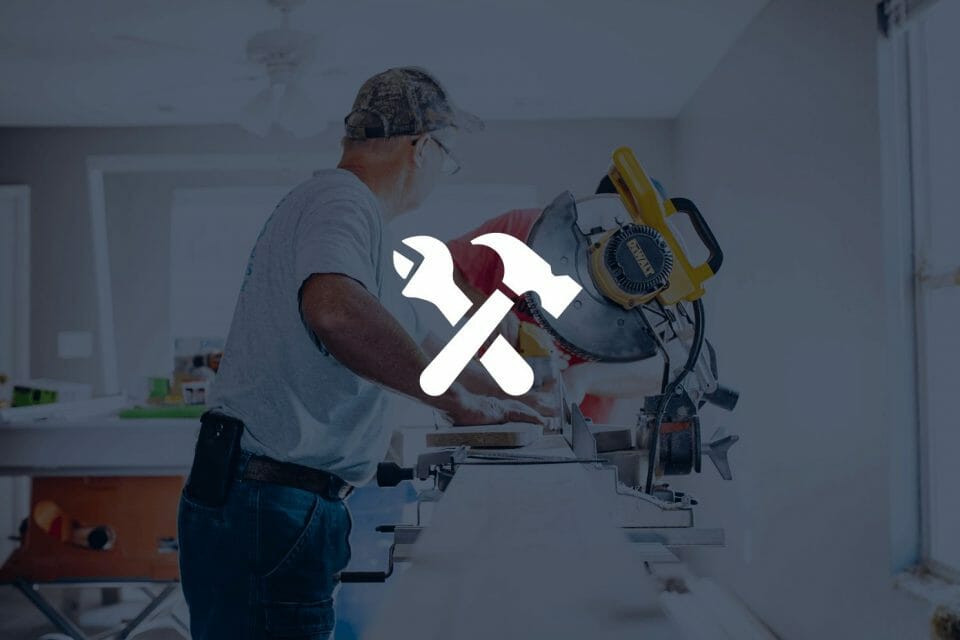Top 11 Housing & Home Builder Stocks to Buy in 2023

Introduction to Home Builder Stocks
Home builder stocks are stocks of companies that are involved in the construction and sale of residential properties. These companies are responsible for building houses, apartments, and other residential structures, and then selling them to buyers. Investing in home builder stocks can be a profitable venture, but it is important to understand the market trends and factors that can affect the performance of these stocks.
What are home builder companies?
These companies can range from large, national corporations to smaller, local builders. When you invest in home builder stocks, you are essentially investing in the performance and profitability of those companies.

Are home builder stocks a short-term or long-term investment?
Home building is very cyclical and momentum oriented.
Home builder stocks performance really depends on where we are in the economic cycle, and how housing is performing. Building starts have remained strong, and there’s still demand but not enough supply. Labour and land shortages will also push prices up.
In a lowering interest climate, these stocks tend to do well, where as if the interest rate rises, they usually take a hit. If you can put up with a little bit of volatility, this sector would not be a bad idea. People have to live somewhere and the home builders and construction companies will do well over time.
Home builder stocks can be both short-term and long-term investments, depending on your investment goals and strategy. In the short term, these stocks can be influenced by various factors such as housing market trends, interest rates, and economic conditions. However, in the long term, the performance of home builder stocks can be driven by factors such as population growth and demand for housing.
Overview of the Housing Market
Current state of the housing market
Despite the challenges posed by the COVID-19 pandemic, the housing market has experienced a remarkable surge over the past three years. This period saw unprecedented levels of housing market activity, driven by a combination of factors such as historically low mortgage rates, pent-up demand, and a shift towards remote work that prompted individuals to reconsider their living arrangements.
However, the landscape is now undergoing a shift as the housing market begins to show signs of slowing down. This change can be attributed to the recent uptick in mortgage rates, which have tempered some of the purchasing power that buyers enjoyed during the peak of the market frenzy. Additionally, the constrained housing inventory has played a significant role in this deceleration, creating a situation where eager buyers are met with limited options, leading to a more cautious approach in the market.
Factors influencing the housing market
The construction industry plays a significant role in the economy, and it encompasses a wide range of activities, including residential, commercial, and infrastructure construction. The performance of the construction industry can have a direct impact on the profitability of home builders and their stocks.
Several additional actors can influence the housing market…
- Interest rates: Interest rates play a pivotal role in shaping the housing market’s trajectory. Low mortgage rates can make buying a home more affordable and can stimulate demand for housing. On the other hand, high interest rates can make borrowing more expensive and can deter potential buyers.
- Economic conditions: During periods of robust economic growth and low unemployment, individuals are more likely to have the financial stability and confidence necessary to invest in real estate. Favorable economic conditions can increase both the ability and willingness of potential buyers to participate in the housing market, thus driving demand and potentially causing property values to rise.
- Demographic trends: Shifts in population growth, age demographics, and household formations can dictate the demand for various types of housing. For example, an influx of young professionals seeking starter homes can drive demand for smaller properties, while an aging population might increase the demand for retirement communities or assisted living facilities.
- Government policies: Incentives such as tax credits for first-time homebuyers – like the first home savings account (FHSA) in Canada – or subsidies for affordable housing can boost demand and influence purchasing decisions.
As the housing market navigates through the current transitional phase, it remains to be seen how various economic and societal factors will continue to influence its trajectory in the coming months.
Best Home Builder Stocks to Consider (🇺🇸 NYSE)
D.R. Horton (NYSE:DHI)
D R Horton Inc. (DHI-N) is one of the largest home builders in the United States, and it is considered among the largest home builders in the world. With a strong presence in multiple markets across the United States. The company offers a wide range of homes, from entry-level to luxury, and has a solid track record of financial performance.
PulteGroup (NYSE:PHM)
Plute Homes is the third largest home construction company in the U.S. It is a Fortune 500 company. It is another leading home builder in the United States, known for its focus on quality construction and customer satisfaction. The company operates in multiple markets and offers a diverse range of homes to cater to different buyer preferences.
Toll Brothers (NYSE:TOL)
Toll Brothers Inc. (TOL-N) is a luxury home builder in major metropolitan areas in the United States. A good long-term play where those who are patient will be rewarded. They have a lot of land holdings and will do well over time. They specialize in building high-end homes in premier locations. The company has a strong reputation for quality craftsmanship and attention to detail, making it a top choice for luxury home buyers.
NVR (NYSE:NVR)
NVR is a home building company that operates under several brand names, including Ryan Homes, NVHomes, and Heartland Homes. The company has a strong presence in multiple markets and offers a variety of home styles and designs.
Lennar Corporation (NYSE:LEN)
Lennar Corp. (LEN-N) is one of the largest home builders in the United States, with operations in more than 20 states. The company offers a wide range of homes, from entry-level to luxury, and has a strong reputation for quality construction and customer satisfaction.
Best Home Builder Stocks to Consider (🇨🇦 TSX)
Canada also has a strong homebuilding industry, but there are fewer homebuilder companies listed on the Toronto Stock Exchange (TSX). Investing in homebuilder stocks in Canada can offer exposure to the Canadian housing market and the construction industry.
Chartwell Seniors Housing (TSX: CSH.UN)
Chartwell Seniors Housing (CSH.UN-T) is a real estate investment trust (REIT) that specializes in the development and management of retirement residences in Canada. The company focuses on providing high-quality living environments and services for seniors.
Sienna Senior Living (TSX: SIA)
Sienna Senior Living is a leading provider of senior housing and long-term care services in Canada. With a portfolio of over 85 retirement communities, Sienna offers a wide range of accommodation options and care services tailored to the unique needs and preferences of older adults. The company’s communities are designed to promote a vibrant and engaging lifestyle for residents, with amenities such as fitness centers, dining options, and social activities.
Bird Construction (TSX:BDT)
Bird Construction specializes in general contracting, construction management, and design-build services for a wide range of projects, including commercial, industrial, institutional, and residential buildings. The company is known for its involvement in constructing infrastructure, such as healthcare facilities, educational institutions, government buildings, and more.
Genworth MI Canada Inc. (TSX: MIC)
Genworth MI Canada Inc. is a private residential mortgage insurer in Canada. The company provides mortgage insurance. They are a subsidiary of an American parent company. Banks tend to give some of their business to them. A non-bank financial and sells insurance on mortgages. They have a solid balance sheet and do not insure high risk mortgages. The Genworth stock provides exposure to the Candian Housing Market.
More Promising Home Builder Stocks
Amidst the prevailing market conditions characterized by escalating interest rates and their impact on the housing sector, there emerges a unique prospect for investment. The possible devaluation of stocks within the housing market offers a distinctive opportunity for potential investors. As interest rates exert downward pressure, considering an investment in home builder stocks holds the potential for substantial returns. This avenue appeals particularly to those seeking portfolio diversification and who are prepared to assume a calculated degree of risk.
M/I Homes, Inc. (NYSE:MHO)
M/I Homes, Inc. is a home builder that operates in several markets across the United States. The company offers a variety of home designs and styles to cater to different buyer preferences.
Summit Materials, Inc. (NYSE:SUM)
Summit Materials, Inc. is a construction materials company that provides products and services to the construction industry. The company supplies materials such as aggregates, cement, and ready-mix concrete to home builders and other contractors.
Voxeljet AG (NASDAQ:VJET)
Voxeljet AG is a 3D printing company that provides services to the construction industry. The company specializes in creating large-scale, high-resolution models and prototypes for architectural and design purposes. White Voxljet AG is more of a tech company, it provide an indirect exposition to the housing market.
What to consider when investing in Home Builder stocks?
Market trends and forecasts
When investing in home builder stocks, it is important to consider market trends and forecasts. Monitoring the housing market trends and forecasts can provide insight into the potential demand for housing and the overall health of the construction industry.
Financial performance and stability of home builders
Evaluating the financial performance and stability of home builders is crucial when investing in their stocks. Examining key financial indicators such as revenue, net income, and earnings per share (EPS) can help assess the company’s profitability and potential for growth.
Growth potential and expansion plans
Assessing the growth potential and expansion plans of home builders is important when considering their stocks. Understanding their strategies for entering new markets, developing new communities, and expanding their product offerings can provide insight into their future prospects.
Historical homebuilder stock performance
Historical performance of homebuilder stocks can provide insight into their past performance and potential for future growth. For example, Warren Buffet recently loaded up on home builder stocks. Analyzing the performance of homebuilder stocks in previous years, such as their stock price movements and financial performance, can help investors gauge their potential returns.
Impact of industry trends on homebuilder stocks
Industry trends, such as changes in construction methods, advancements in technology, and regulatory changes, can significantly impact homebuilder stocks. Staying updated on industry trends can help investors anticipate potential challenges and opportunities for homebuilder stocks.
Top ETFs for investing in homebuilder stocks
Investors who want exposure to homebuilder stocks can consider investing in exchange-traded funds (ETFs) or sector funds that focus on the construction and housing sectors.
SPDR S&P Homebuilders ETF (XHB-N)
The SPDR S&P Homebuilders exchange-traded fund (ETF) seeks to track the S&P Homebuilders Select Industry Index, which consists of companies engaged in various aspects of the homebuilding sector, including construction, development, and related services. By investing in this ETF, individuals and institutions can gain a diversified portfolio of homebuilder stocks, allowing them to potentially benefit from the growth and trends within the housing market.
iShares US Home Construction ETF (ITB-N)
The iShares DJ Home Construction ETF offers a simple way for investors to tap into the performance of the U.S. residential construction sector. This exchange-traded fund tracks an index of companies involved in homebuilding, providing a diversified approach to potentially benefit from the housing market’s growth.
Invesco Dynamic Building & Construction ETF (PKB-A)
The Invesco Dynamic Building & Construction ETF provides investors with a focused avenue to participate in the building and construction sector. By tracking a dynamic index of companies engaged in various aspects of this industry, the ETF offers an opportunity to potentially capitalize on market trends and innovations within the sector.
BMO Global Infrastructure Index ETF (TSX: ZGI)
While not a direct housing market ETF, ZGI provides Canadian investors with an opportunity to access a diversified portfolio of companies involved in essential infrastructure projects worldwide. This includes sectors such as transportation, utilities, energy, and communication, which play a crucial role in modern economies. Despite the absence of a dedicated housing ETF in Canada, ZGI enables investors to indirectly engage in the broader infrastructure landscape, potentially benefiting from the stability and growth opportunities presented by these essential industries.
Conclusion
Key takeaways for investing in homebuilder stocks in 2023
Investing in homebuilder stocks can be a lucrative opportunity, especially as the demand for housing continues to soar. Understanding the current state of the housing market, the performance of homebuilders, and the factors influencing the construction industry is crucial for making informed investment decisions.






















